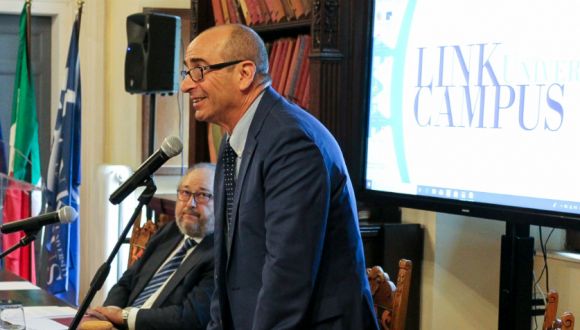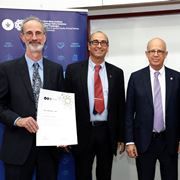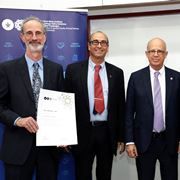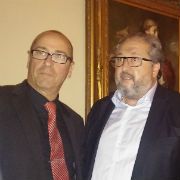Balancing Transparency and Secrecy in Diplomacy
The history of mankind is replete with conflict; while some disputes have destroyed entire nations and killed and displaced countless millions, others have been resolved relatively quickly with little or no bloodshed at all. To figure out why, Tel Aviv University’s Boris Mints Institute for Strategic Policy Solutions to Global Challenges (BMI)and Link Campus University, Rome, brought together over 30 leading experts in conflict resolution from around the world to discuss “Conflict Diplomacy in the Digital World.” Participants included former presidents, ambassadors, and defense and finance ministers. Through panel discussions and lectures, speakers dissected the reasons some conflicts remain intractable, while others have ended via compromise and conciliation.
“I am amazed,” said Dr. Boris Mints, President and founder of BMI, “that after two world wars and the deaths of over 100 million people, there is still no legal basis for conflict resolution that entails an internationally recognized and acceptable judicial process.” To further complicate matters, with the advent of the digital age, media leaks and fake news, public opinion can easily sway if not derail diplomatic attempts to find workable solutions.
How do you manage diplomacy in an environment where the public is often fed misleading news and rhetoric? What is the role of diplomacy in the contemporary world and how should it adjust to the new realities of the digital age?
580x330.jpg) From left: Amit Loewenthal, BMI Fellow, TAU Department of Public Policy; Dr. Ahmed Abdelwahed, Chairman, Academy for International Development; Dr. Sami Miaari, TAU Department of Labor Studies; Prof. Itai Sened, Head of BMI
From left: Amit Loewenthal, BMI Fellow, TAU Department of Public Policy; Dr. Ahmed Abdelwahed, Chairman, Academy for International Development; Dr. Sami Miaari, TAU Department of Labor Studies; Prof. Itai Sened, Head of BMI
Prof. Itai Sened, Head of BMI, presided over a panel called “Diplomacy in the Modern Era” that addressed these questions. “If there is one real threat to diplomacy as a tool for conflict resolution, it is the loss of secrecy and privacy during complex and difficult negotiations,” he said. The other speakers, including Prof. Itamar Rabinovich, member of BMI Advisory Board, former Israeli Ambassador to the US and President Emeritus of TAU, all agreed that when the doors are open, you negotiate not only with the other side, but with those on your own side as well.
One recent success story in conflict resolution was touted by the panel moderated by Prof. Piero Schiavizzi of Link Campus University. This was the peace process that ended the war between the Colombian government and the Revolutionary Armed Forces of Colombia (FARC) in 2016. According to former Israeli Foreign Minister Prof. Shlomo Ben-Ami, who worked closely with the Columbian government, conflicts often start with a narrative which people have internalized and refuse to reexamine. In order to resolve animosities and distrust, the narratives must be changed by getting each side to listen to the other. “The Colombians created a commission to address matters of history and competing narratives,” said Prof. Ben-Ami, adding that they were successful in creating the diplomatic environment needed to allow for moving forward, all the while taking advantage of political changes in the region.
The event also included forums on the Israeli-Palestinian Conflict – Perspective and Prospects; Europe after the European Parliament Elections; and Foreign and Defense Ministers’ Forum: The Middle East in the Contemporary Global Perspective.
Among the many distinguished speakers at the conference were Ambassador Daniel Shek, former Israeli Ambassador to France and Monaco; Ambassador Ferdinando Salleo, former Secretary General of the Italian Ministry of Foreign Affairs and former Italian Ambassador to the US and Soviet Union; Prof. Fabio Nicolucci, Middle East political analyst, Link Campus University; and Dr. Sami Miaari, TAU Department of Labor Studies.
For the full conference report: https://1e77aae8-7794-4927-85e4-bc314e1d90f5.filesusr.com/ugd/2ea2a4_732fddb3afd94901b3810f140c4150db.pdf






